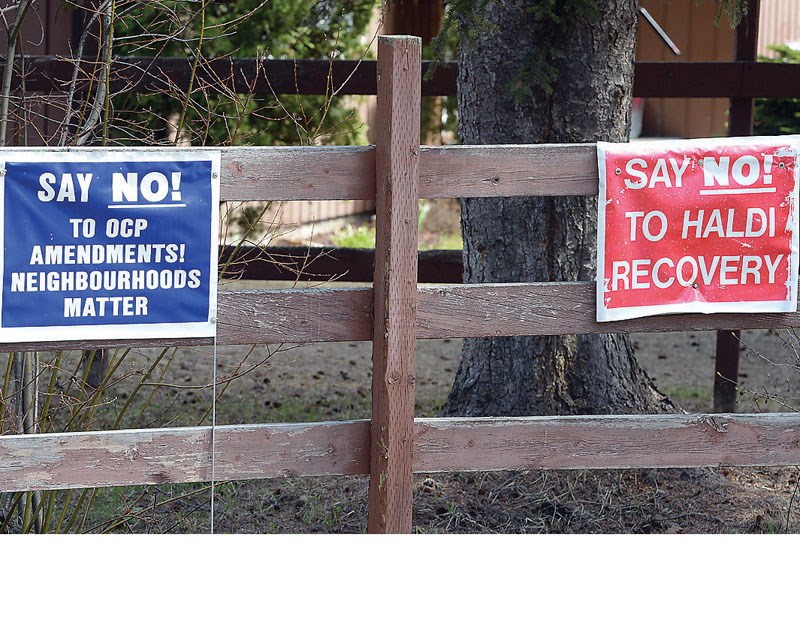A B.C. Supreme Court Justice has dismissed a lawsuit brought against the city by Haldi Road area residents opposed to the development of the Northern Supportive Recovery Centre.
Justice Ron Tindale's judgment, issued Wednesday morning, ends a year-long court battle sparked when area resident Torre Pettersen filed a petition seeking to quash city council's decision to allow the 30-bed facility to be located in the old Haldi Road elementary school at 5877 Leslie Road.
Mayor Shari Green said the outcome left her relieved and added there is a need in the north for the facility, "so I am pleased that the applicant will be able to proceed with that.
"But at the same time I'm torn because I know it was divisive for many residents of the neighbourhood and they won't be happy with the outcome."
Pettersen declined to comment Tuesday morning because he had not yet seen the ruling.
Pettersen, who was later joined by 10 others who signed onto the petition, launched the action in May 2013, just shy of three weeks after council gave the go-ahead for a second time.
A previous council vote was also in favour of the centre, but that decision was overturned when a B.C. Supreme Court judge ruled the attempt to rezone the property violated the community plan. In response, the current city council amended the plan following a public hearing, in addition to passing a zoning amendment.
Pettersen claimed the decision remained invalid because it was inconsistent with the city's official community plan and council's amendment to the OCP is "internally inconsistent" with city policies in respect to Rural B property, which is marked for "moderate-intensity rural residential use" with a minimum lot size of one per two hectares.
Of particular note for Green in the ruling is the statement that an "OCP is not meant to be a static document but rather is fluid and develops over time. Surely, a municipal council can revise and change its policies and visions to accommodate an ever-changing community."
Green said that statement is "pretty important for future rulings for municipalities, that council has decisions to make. Some of them are easy, some of them are hard but at the end of the day, we do what we think is best."
"Certainly one of the objectives of council could be to provide special needs housing in a rural area," the written judgment says. "It is up to council to determine whether special needs housing fits in the rural setting." (See below for the full reasons for judgment.)
Pettersen had also claimed Green was in a conflict of interest when she voted on the matter due to a long-standing friendship with Brian Fehr, one of the shareholders in the company that owns the land. That aspect of the proceeding was abandoned, however, before the matter was taken to trial in October.
"Twice the neighbourhood has been to court on this issue, and what they do from here is up to them but the city felt very strongly and certainly council overwhelmingly supported this application so I'm looking forward to seeing women across the north have access to this important resource," Green said.
In a statement, the Haldi Road Community Committee continued to maintain it's the wrong location for the centre and noted that of the 194 properties canvassed, 153 of them strongly opposed the amendment.
"This repeated disregard of the neighbourhood's wishes sparked this latest court case," the committee said. "This challenge was a community effort where fund raising played an important part of not only bonding the community, but assisting our financial obligations."
A representative of the Northern Supportive Recovery Centre could not be reached for comment Wednesday.



